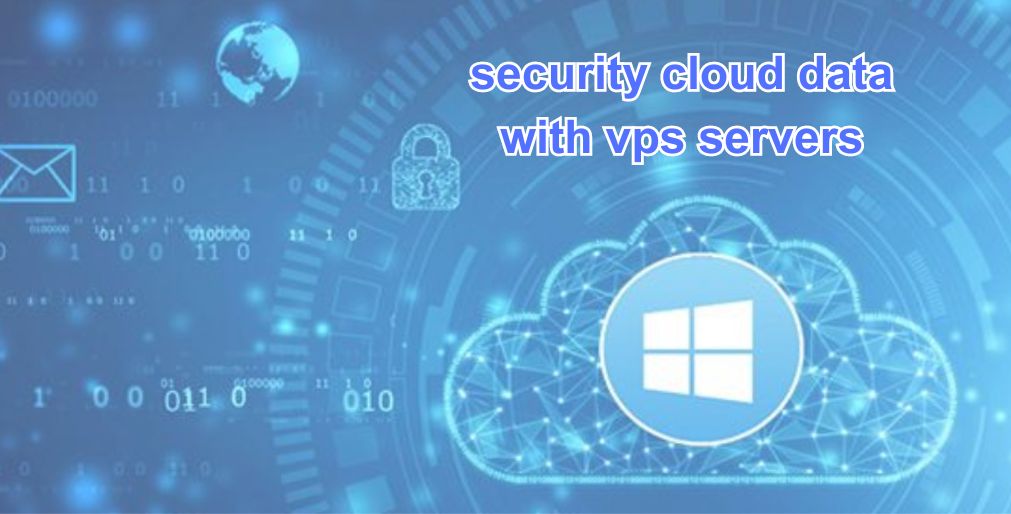In an era of digital transformation, cloud data security has become a paramount concern for businesses worldwide. As organizations increasingly migrate their data and applications to the cloud, ensuring data confidentiality, integrity, and availability has become more critical. Amidst this backdrop, Virtual Private Servers (VPS) emerge as a robust solution for safeguarding cloud data, offering a secure and customizable platform for hosting sensitive information. In this comprehensive guide, we delve into the intricacies of securing cloud data with VPS servers, exploring best practices, key considerations, and emerging trends in cloud security.
Understanding VPS Servers
Before delving into security, it’s essential to grasp the fundamentals of Virtual Private Servers (VPS). A VPS is a virtualized server environment created within a more extensive physical server infrastructure. Unlike shared hosting, where multiple users share the resources of a single server, a VPS provides users with dedicated resources, including CPU, memory, and storage. This isolation ensures greater control, security, and performance, making VPS servers an attractive option for businesses seeking a balance between affordability and reliability.
The Security Landscape of Cloud Data
The security landscape of cloud data is multifaceted, encompassing a myriad of threats and vulnerabilities. Businesses face various security risks in the cloud, from data breaches and malware attacks to insider threats and compliance challenges. Key security considerations include:
- Data Encryption: Encrypting data at rest and in transit is essential for protecting sensitive information from unauthorized access. Robust encryption algorithms and secure essential management practices are critical components of a comprehensive data security strategy.
- Access Control: Implementing strong access controls and authentication mechanisms is vital for controlling who can access cloud data and resources. Role-based access control (RBAC), multi-factor authentication (MFA), and identity and access management (IAM) tools play a crucial role in enforcing access policies and mitigating the risk of unauthorized access.
- Network Security: Securing the network infrastructure is essential for preventing unauthorized access and data exfiltration. Firewalls, intrusion detection and prevention systems (IDPS), and virtual private networks (VPNs) help establish secure communication channels and protect against network-based attacks.
- Compliance and Governance: Compliance with industry regulations and standards is a top priority for businesses operating in the cloud. Adhering to frameworks such as GDPR, HIPAA, and SOC 2 ensures that cloud data is handled securely and compliantly, mitigating the risk of legal and regulatory repercussions.
Securing Cloud Data with VPS Servers
VPS servers offer a robust platform for securing cloud data, providing businesses the control and flexibility to implement tailored security measures. Critical strategies for securing cloud data with VPS servers include:
- Isolation: Leveraging the isolation provided by VPS servers, businesses can segment their data and applications to prevent unauthorized access and minimize the impact of security incidents. Isolating sensitive workloads from less critical ones helps contain breaches and limit the exposure of sensitive information.
- Encryption: Encrypting data stored on VPS servers adds a layer of security, rendering it unreadable to unauthorized users. Implementing encryption at the file system or application level ensures that attackers cannot decipher the encrypted data without the proper keys, even if attackers gain access to the server.
- Access Controls: Implementing robust access controls and authentication mechanisms on VPS servers helps restrict access to authorized users and prevent unauthorized access. Role-based access control (RBAC), least privilege principle, and strong password policies are essential to effective access management.
- Patch Management: Keeping VPS servers up-to-date with the latest security patches and updates is crucial for addressing known vulnerabilities and mitigating the risk of exploitation. Regularly applying security patches and conducting vulnerability assessments helps keep VPS servers secure and resilient against emerging threats.
- Monitoring and Logging: Implementing robust monitoring and logging capabilities on VPS servers allows businesses to detect and respond to security incidents in real time. Monitoring for abnormal behavior, unauthorized access attempts, and suspicious activities helps identify security breaches early and minimize their impact.
Emerging Trends in Cloud Security
As cloud computing evolves, new trends and technologies shape the cloud security landscape. Some emerging trends to watch include:
- Zero Trust Security: Zero-trust security models, which assume that no entity, whether inside or outside the network, can be trusted, are gaining traction in the cloud. Implementing Zero-Trust principles helps businesses strengthen their security posture and mitigate the risk of insider threats and lateral movement.
- Secure Access Service Edge (SASE): Secure Access Service Edge (SASE) combines network security functions with wide-area networking (WAN) capabilities to provide comprehensive security for cloud-based applications and data. By consolidating security controls into a unified cloud-delivered service, SASE helps businesses simplify security management and reduce complexity.
- Cloud Security Posture Management (CSPM): Cloud Security Posture Management (CSPM) solutions help businesses ensure compliance and security across their cloud environments. By continuously monitoring cloud configurations, identifying misconfigurations and security gaps, and providing remediation recommendations, CSPM solutions help businesses strengthen their cloud security posture and reduce the risk of security incidents.

Conclusion
In conclusion, securing cloud data with VPS servers is a multifaceted endeavor that requires a comprehensive and proactive approach. By leveraging VPS servers’ isolation, control, and flexibility, businesses can implement tailored security measures to protect sensitive information and mitigate security risks in the cloud. From encryption and access controls to patch management and monitoring, securing cloud data with VPS servers requires a combination of technical controls, best practices, and emerging technologies. By staying abreast of evolving threats, trends, and regulations, businesses can ensure that their cloud data remains secure, compliant, and resilient in the face of ever-changing cyber threats.